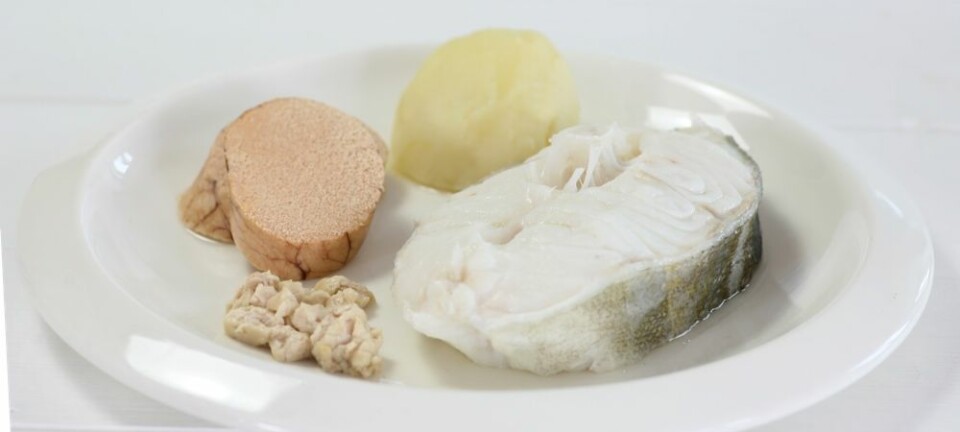
Vitamin C deficiency can reduce IQ
Researchers investigate the role vitamin C plays in brain development.
We humans belong to a small group of species that are unable to make their own vitamin C and that means we have to take care not to end up with a vitamin C deficiency, which may have severe health impacts.
To understand exactly how harmful it can be, researchers from the University of Copenhagen, Denmark, carried out experiments on guinea pigs, who, like us, are unable to make vitamin C, to see how the rodents respond to a deficiency.
The research team found that a lack of vitamin C in guinea pigs leads to a lower IQ, underdevelopment of the central nervous system, and poor memory skills.
Now the question is, does the same hold true for humans?
"In guinea pigs, we can see that a lack of vitamin C during foetal development and in early life can have very serious consequences for brain development,” says lead scientist behind the new project, Jens Lykkesfeldt from the University of Copenhagen.
“At the same time we know that five to fifteen per cent of the Western world suffers from vitamin C deficiency. For some groups the figure is 30 to 40 per cent,” says Lykkesfeldt.
“We need to better understand what happens in [guinea pigs’] brains when they get too little vitamin C. Then we will see if we can apply our findings to humans," he says.
Vitamin C deficiency leads to underdeveloped brains
Lykkesfeldt has studied the effect of vitamin C in guinea pigs for over ten years and his previous findings have made US health authorities issue recommendations that pregnant women and smokers increase their daily vitamin C intake by 30 per cent above the rest of the population.
Lykkesfeldt’s research has shown that guinea pigs with a slight vitamin C deficiency have smaller and underdeveloped brains and are less able to produce nerve cells. They also experience increased oxidative stress in the brain due to substances called reactive oxygen metabolites, which damage cells and DNA.
"Some of our guinea pigs had 30 per cent fewer brain cells due to a vitamin C deficiency during the brain development stage. This corresponds to a serious brain injury,” he says.
“We have no clinical evidence [to confirm] that it also applies to people, but in guinea pigs, vitamin C is at the very least incredibly important during foetal development and early life," says Lykkesfeldt.
What is certain though, he says, is that the low levels of vitamin C intake often observed in humans, have extremely harmful health impacts in guinea pigs.
Vitamin C deficiency: a lasting social legacy
Lykkesfeldt says the results could also apply to us and so health researchers need to thoroughly investigate the topic.
"If it turns out that the same applies to people, then we should of course ensure that pregnant women and babies receive the necessary amount of vitamin C, so the brain can develop as it should,” says Lykkesfeldt.
Vitamin C deficiency in people occurs due to poor dietary habits, which according to Lykkesfeldt, is something that can be addressed.
“If our hypothesis is true then a lack of vitamin C could actually contribute to a negative social legacy if families cannot afford proper nutrition," he says.
A broad range of cognitive impacts
In the new study, Lykkesfeldt and his team will study how the brain matures by examining the differences in the development of individual brain cells that are exposed to varying levels of Vitamin C.
The researchers will also investigate how a lack of vitamin C might affect the brain cells' ability to communicate with one another--the vitamin is known to impact on two crucial substances in brain cell communication: dopamine and norepinephrine.
"We want to delve deeper into these mechanisms and understand the fundamental processes by which vitamin C affects brain function and development. If it does affect brain cell communication then this has impacts on cognition across the board," says Lykkesfeldt.
The research project will last for two years, from 1 August 2015 to 31 July 2017.
-------------
Read the Danish version of this article on Videnskab.dk
Translated by: Catherine Jex
Scientific links
External links
- "Maternal Vitamin C Deficiency during Pregnancy Persistently Impairs Hippocampal Neurogenesis in Offspring of Guinea Pigs", Plos One, DOI: 10.1371/journal.pone.0048488
- "Vitamin C deficiency in early postnatal life impairs spatial memory and reduces the number of hippocampal neurons in guinea pigs", The American Journal of Clinical Nutrition, DOI: 10.3945/ajcn.2009.27954











